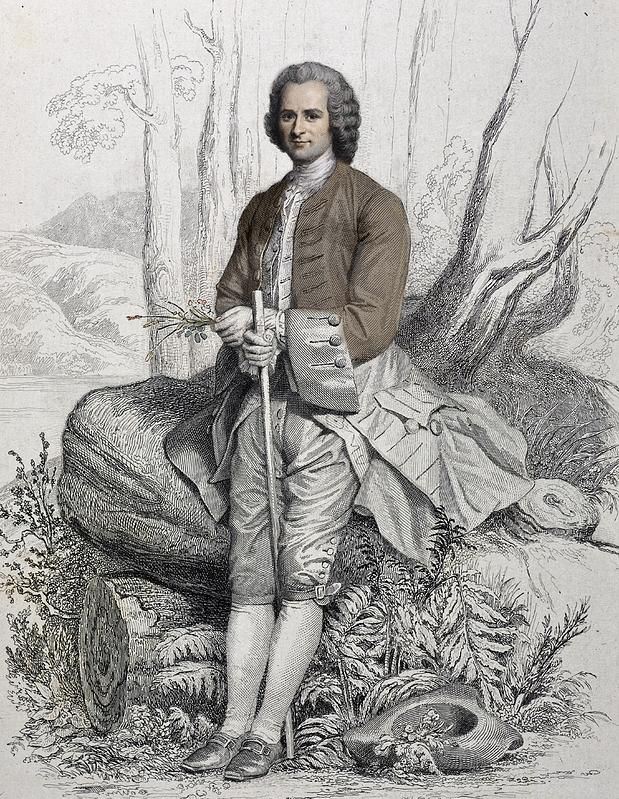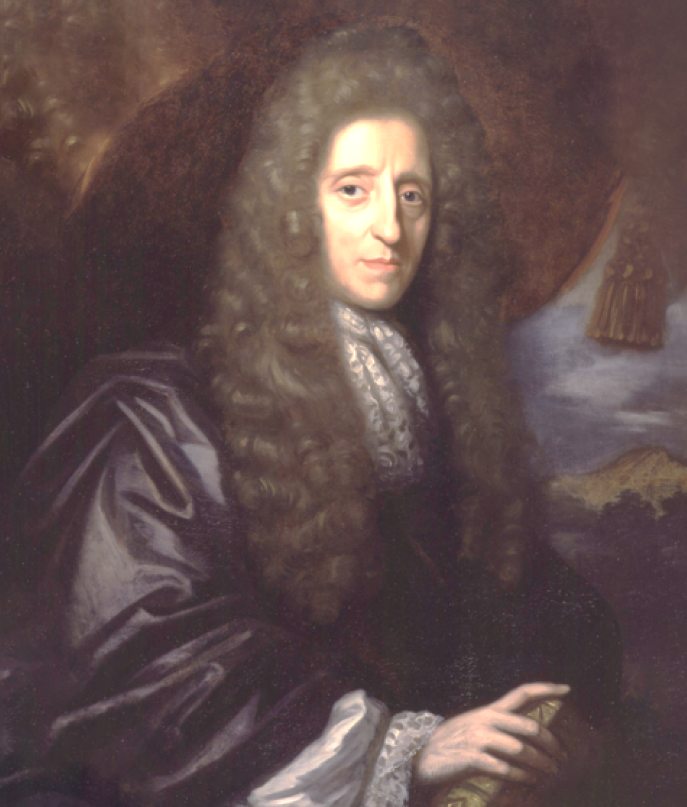di Riccardo Piroddi
Nel Seicento, all’interno dei grandi sistemi filosofici di Spinoza e Leibniz, la metafisica occupava una posizione centrale e privilegiata, costituendo il fondamento per ogni altra forma di conoscenza, compresa la scienza. La filosofia non si limitava a riflettere sui princìpi primi, ma forniva anche un quadro complessivo entro il quale la scienza trovava il suo posto. La metafisica, in altre parole, comprendeva ancora al suo interno lo scientifico, considerandolo come uno dei suoi rami. In questa prospettiva, la scienza era come una branca dell’albero secolare della filosofia, con la metafisica che fungeva da radice e tronco. Tuttavia, questo schema unitario iniziò a frantumarsi con la filosofia di Kant e i suoi sviluppi successivi.
Con Kant, infatti, si verificò una svolta decisiva: la filosofia perse il ruolo di fondamento ontologico della scienza e si trasformò in una riflessione sui presupposti del sapere scientifico. Kant cercò di comprendere e illuminare le basi dell’indagine scientifica, sforzandosi di trovare un’unità tra le varie manifestazioni del sapere. Tuttavia, l’approccio kantiano segnò il passaggio a una nuova epoca, in cui la filosofia non poté più pretendere di fondare la scienza in modo totalizzante. Non vi era più un unico tronco metafisico dal quale diramavano le scienze, ma piuttosto una molteplicità di rami, sempre più complessi e specializzati, che la filosofia cercava di comprendere. L’obiettivo della filosofia diventò, quindi, sempre più conoscitivo, ovvero un tentativo di trovare un senso e un ordine nelle diverse branche della scienza, senza, però, avere il potere di unificarle sotto un unico principio metafisico.
Il compito della filosofia si fece, allora, maggiormente arduo, e forse impossibile, man mano che le scienze progredivano e si frammentavano in specializzazioni più minute e indipendenti tra loro. Oggi, i rami delle scienze sembrano essersi distaccati dal tronco, rendendo difficoltoso alla filosofia riunirli e dare loro un significato complessivo. La scienza, con i suoi sviluppi tecnici e le sue molteplici applicazioni, si è emancipata dalla filosofia, creando mondi artificiali che spesso sostituiscono il mondo naturale, come dimostra il progresso tecnologico, che ha trasformato radicalmente le nostre vite. Si pensi, per esempio, a una stazione spaziale, dove ogni oggetto è il frutto di una produzione tecnica umana, lontana dalla natura originaria.

Questa emancipazione della scienza dalla filosofia si è consolidata con la Rivoluzione Industriale, nel Settecento, un periodo in cui la scienza iniziò a mostrare il suo volto tecnico e produttivo, non limitandosi più a essere un sapere teorico. La scienza non solo spiegava il mondo, ma, attraverso la tecnica, iniziava a costruire nuovi mondi. Questo cambiamento epocale portò a un’inversione di ruoli tra scienza e filosofia. Se un tempo la scienza derivava dalla filosofia, oggi è la filosofia che deve confrontarsi con le innovazioni prodotte dalla scienza. I mondi creati dalla tecnica non sono soltanto nuovi oggetti, ma trasformano profondamente le strutture sociali, economiche, politiche e ambientali, ridefinendo le condizioni di vita dell’uomo. La scienza non si limita più a esplorare il mondo, ma lo modifica profondamente, generando nuovi contesti di esistenza che la filosofia è chiamata a interpretare e comprendere.
Questa trasformazione della filosofia si riflette nel modo in cui grandi pensatori del Novecento, come Heidegger, si sono allontanati dalle vecchie forme sistematiche della metafisica per cercare il senso dell’esistenza umana attraverso il dialogo con la poesia. Il linguaggio filosofico è divenuto più agile, intuitivo e libero, meno rigido e deduttivo rispetto al passato. Filosofi come Pascal, con i suoi Pensieri, e Nietzsche, con il suo uso dell’aforisma, avevano già indicato questa strada, prediligendo un linguaggio capace di esprimere intuizioni profonde senza essere intrappolato in rigidi schemi logici. La filosofia si è aperta, così, a linguaggi più poetici e metaforici, dialogando con grandi poeti come Leopardi, Rilke e Trakl, per cercare risposte a domande esistenziali che le scienze non possono affrontare.
In questo nuovo ruolo, la filosofia accetta la sua condizione di riflessività, riconoscendo che la scienza ha ormai ereditato il linguaggio razionale e logico che un tempo apparteneva alla metafisica tradizionale. La filosofia, liberata dal compito di unificare il sapere scientifico, diventa lo spazio in cui l’essere umano può interrogarsi sul significato profondo delle trasformazioni indotte dalla scienza, esplorando nuovi modi di esistenza e cercando risposte alle domande più profonde sul senso della vita e del mondo.

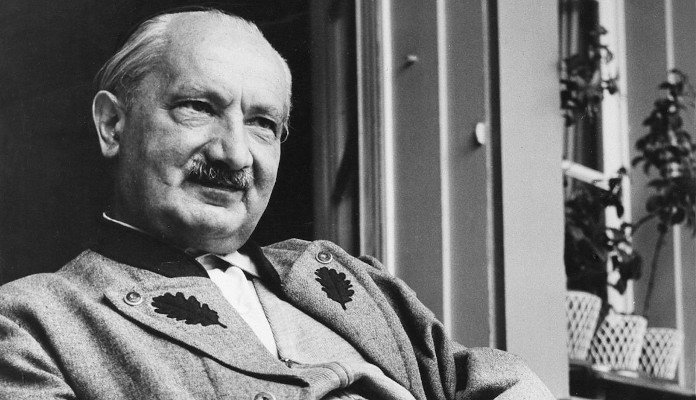
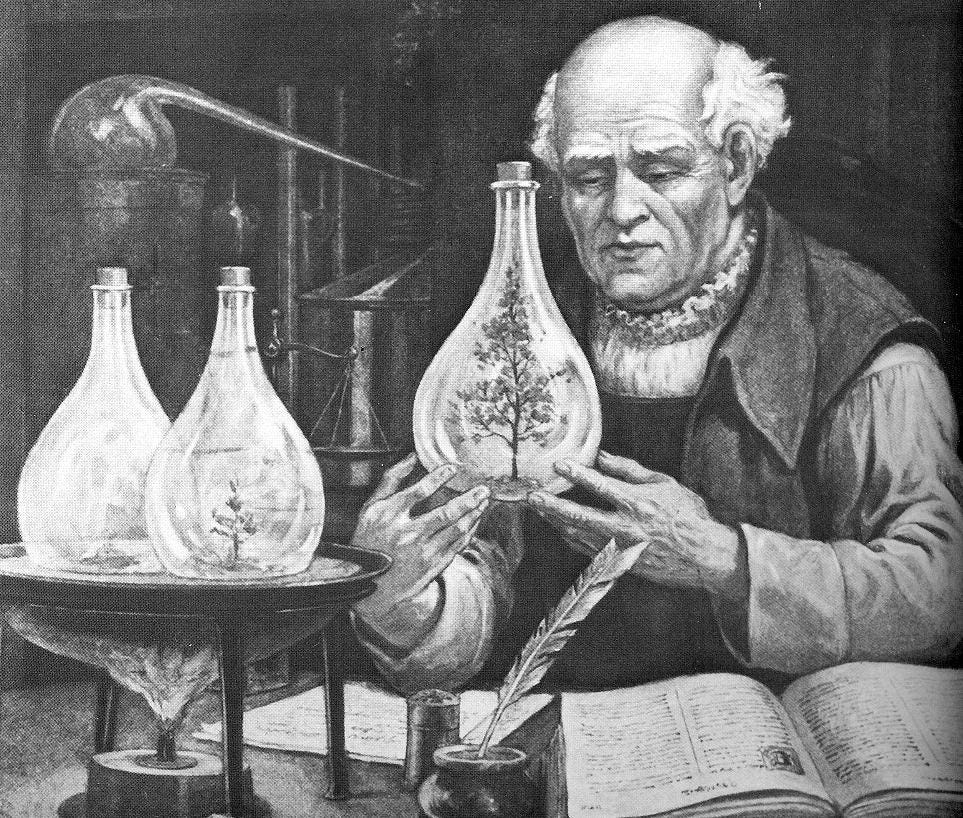

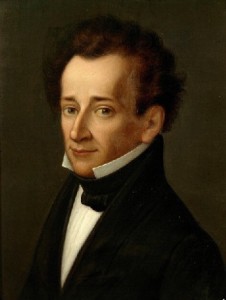


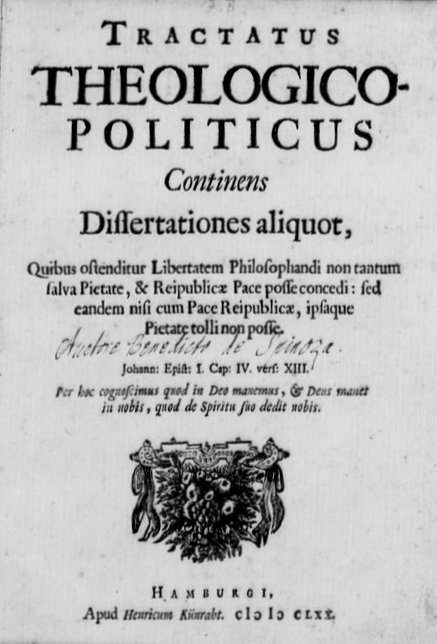 Il Trattato teologico-politico, opera pubblicata anonimamente nel 1670, risulta uno dei testi più rivoluzionari e provocatori nella storia della filosofia moderna. Scritto da Baruch Spinoza, filosofo olandese di origine ebraica, si articola in una profonda critica della religione tradizionale e delle sue interferenze nella politica, prospettando una visione in cui la razionalità e la libertà individuale siano poste al centro della società.
Il Trattato teologico-politico, opera pubblicata anonimamente nel 1670, risulta uno dei testi più rivoluzionari e provocatori nella storia della filosofia moderna. Scritto da Baruch Spinoza, filosofo olandese di origine ebraica, si articola in una profonda critica della religione tradizionale e delle sue interferenze nella politica, prospettando una visione in cui la razionalità e la libertà individuale siano poste al centro della società. Il ruolo dei profeti è un altro tema centrale del Trattato. Spinoza nega loro qualsiasi autorità speciale in termini filosofici o scientifici. I profeti sono considerati uomini di straordinaria immaginazione, non di superiore intelletto. La loro capacità risiede soltanto nell’abilità di esprimere con forza morale ed emotiva messaggi che possono guidare il comportamento etico delle masse. La rivelazione profetica, quindi, non è una conoscenza superiore ma una comunicazione adattata alle circostanze storiche e alle capacità intellettive del “pubblico”. Questa concezione demistifica la figura del profeta, trasformandola da intermediario divino a leader morale influente, la cui autorità deriva dalla capacità di persuasione e dall’efficacia nel promuovere la giustizia e la cooperazione sociale.
Il ruolo dei profeti è un altro tema centrale del Trattato. Spinoza nega loro qualsiasi autorità speciale in termini filosofici o scientifici. I profeti sono considerati uomini di straordinaria immaginazione, non di superiore intelletto. La loro capacità risiede soltanto nell’abilità di esprimere con forza morale ed emotiva messaggi che possono guidare il comportamento etico delle masse. La rivelazione profetica, quindi, non è una conoscenza superiore ma una comunicazione adattata alle circostanze storiche e alle capacità intellettive del “pubblico”. Questa concezione demistifica la figura del profeta, trasformandola da intermediario divino a leader morale influente, la cui autorità deriva dalla capacità di persuasione e dall’efficacia nel promuovere la giustizia e la cooperazione sociale.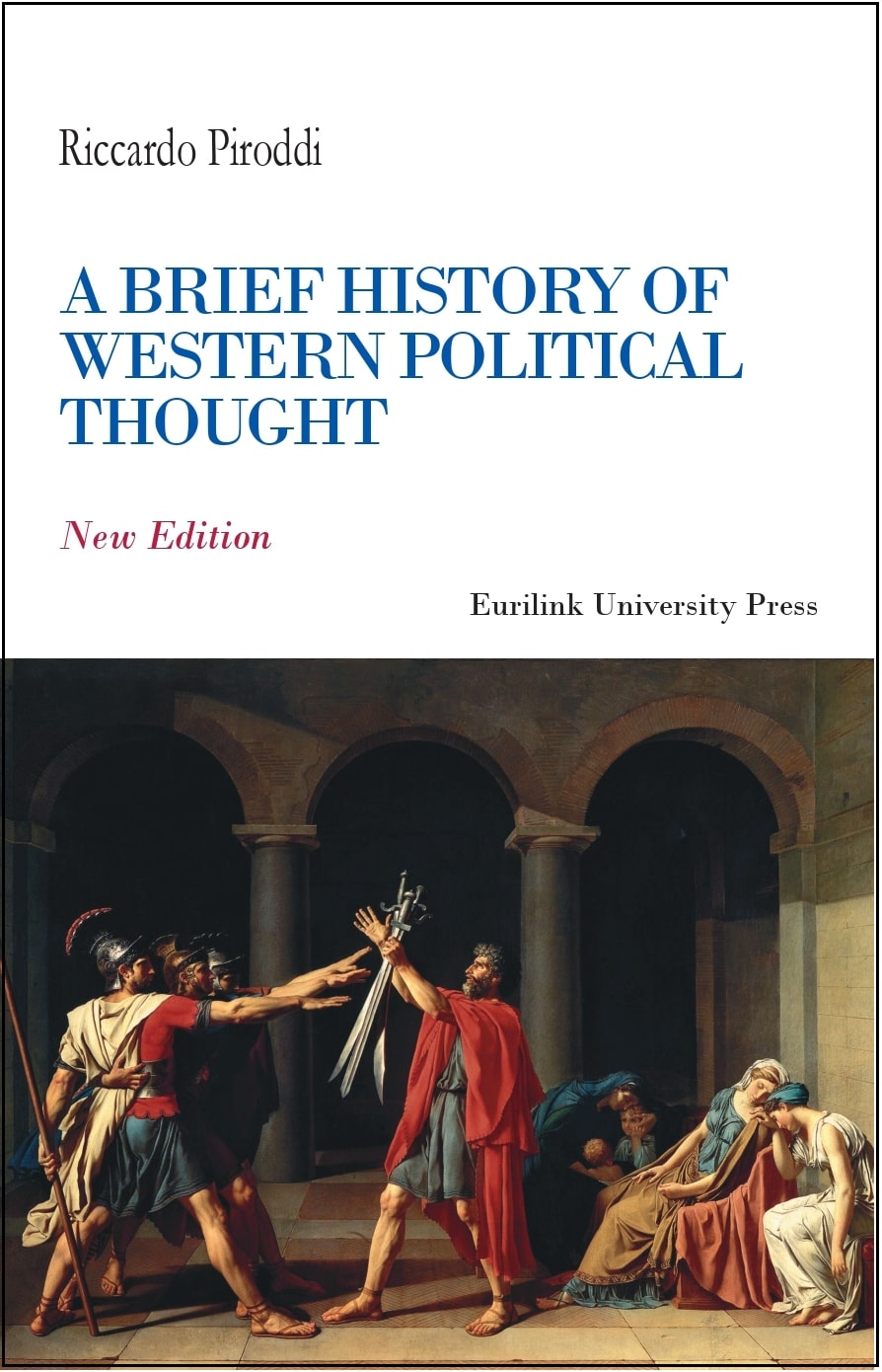
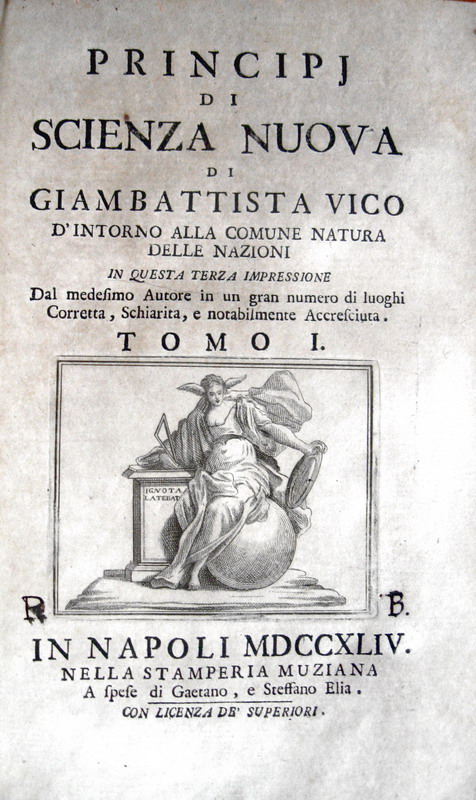 Principi di Scienza Nuova d’intorno alla comune natura delle Nazioni di Giambattista Vico, pubblicato in diverse edizioni tra il 1725 e il 1744, costituisce un punto di svolta nella storia del pensiero filosofico e storico dell’epoca moderna. Questo testo ridefinisce il ruolo della filosofia e della storia, introducendo un nuovo metodo di indagine sulla civiltà umana, basato su principi di variazione e ripetizione, che Vico chiama corsi e ricorsi storici.
Principi di Scienza Nuova d’intorno alla comune natura delle Nazioni di Giambattista Vico, pubblicato in diverse edizioni tra il 1725 e il 1744, costituisce un punto di svolta nella storia del pensiero filosofico e storico dell’epoca moderna. Questo testo ridefinisce il ruolo della filosofia e della storia, introducendo un nuovo metodo di indagine sulla civiltà umana, basato su principi di variazione e ripetizione, che Vico chiama corsi e ricorsi storici.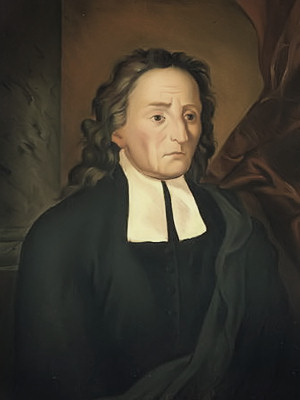 Questo schema delle tre età non solo permette a Vico di analizzare la storia umana in termini di sviluppo e declino, ma offre anche uno strumento per comprendere come le società interpretano e integrano i cambiamenti.
Questo schema delle tre età non solo permette a Vico di analizzare la storia umana in termini di sviluppo e declino, ma offre anche uno strumento per comprendere come le società interpretano e integrano i cambiamenti.